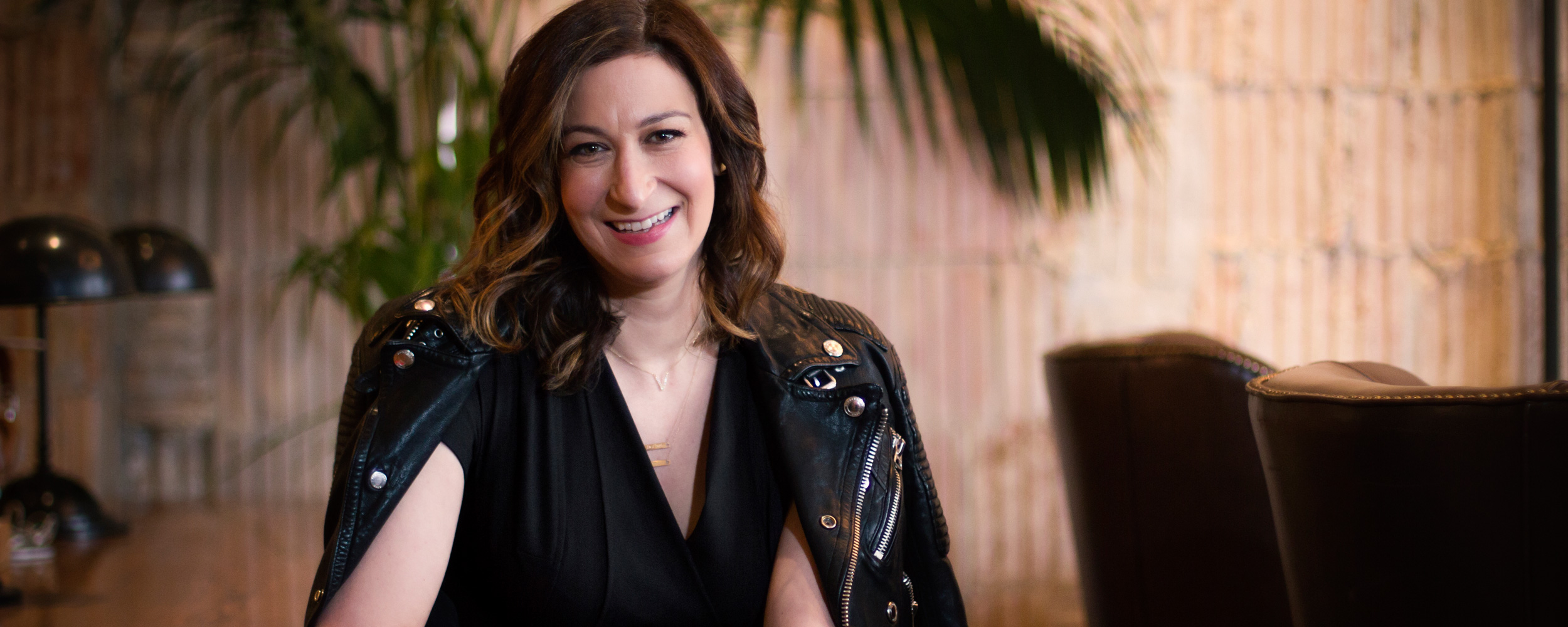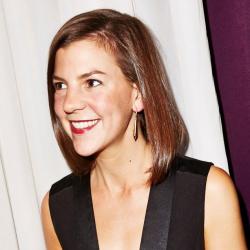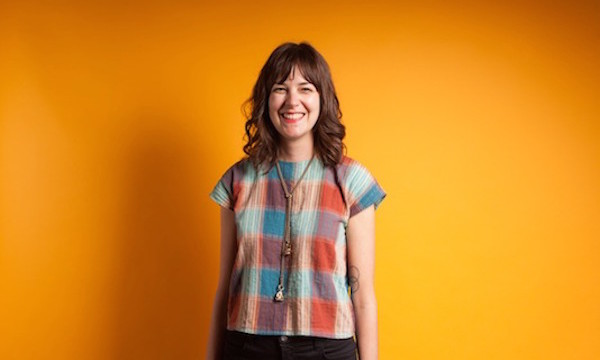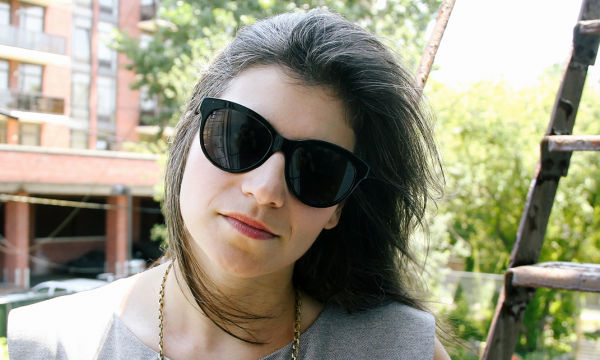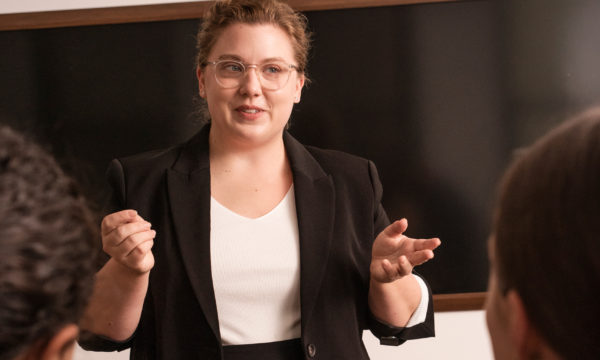Ann Shoket on “Badass Babes,” Her New Career Phase, and Changing the Rules
April 28, 2017 | Filed in: Woman of the Week
It’s tough to name a magazine editor who’s had a bigger effect on today’s young women than Ann Shoket, who was the editor-in-chief at Seventeen from 2007 to 2014 and the executive editor at CosmoGirl for eight years before that. (And yes, closet Top Model fans, she was a guest judge on several seasons.) Now, she’s striking out on her own with a new book, The Big Life: Embrace the Mess, Work Your Side Hustle, Find a Monumental Relationship, and Become the Badass Babe You Were Meant to Be—which has already spawned a corresponding newsletter and a barrage of invitations for speaking engagements—because who can resist a title like that? We caught up with her at NeueHouse (where she actually wrote the book!) on a recent Saturday to talk sisterhood, roof deck parties, and what wakes her up at 3:00 a.m.
WHEN YOU ARE EDITOR-IN-CHIEF of a magazine, the first question everyone asks is, “When are you going to write a book?” The idea for The Big Life had been percolating for a long time, but I was resisting it. I thought, Can’t it just be a social media feed, or blog? Then, in 2012, I started to see a significant change among young women. After years of assuming that everyone could be affluent, and just fall into Lauren Conrad’s world and live in The Hills, the recession hit. What followed was a generation of women who got laser-focused on ambition and success. In those years, I was asked to give a dozen or more speeches on how to start your own business, and a lot of young women reached out asking for tips and advice about careers. It was a very sudden, dramatic shift.
WHEN I LEFT SEVENTEEN in 2014, I knew that I wanted to continue the conversation with the generation of women who’d grown up with me. I was at Seventeen for almost eight years, and at CosmoGirl for eight years before that, so I had a very long view of the range of values of young women, and they were very substantive. This new generation is changing what it means to be successful. The question that’s most interesting to me is that when career and ambition are at the center of your life, how do you put together the rest?
THE STAKES ARE VERY HIGH in your twenties and thirties, and the decisions you make really count in those years. Young women were telling me that they didn’t have role models, and that the old guidelines felt dated and disconnected from their lives. That’s where The Big Life comes in: It’s meant to be a guidepost to help women through the trickiest bits of becoming who they’re meant to me. How can I make you recognize your power and make the world recognize it, too?
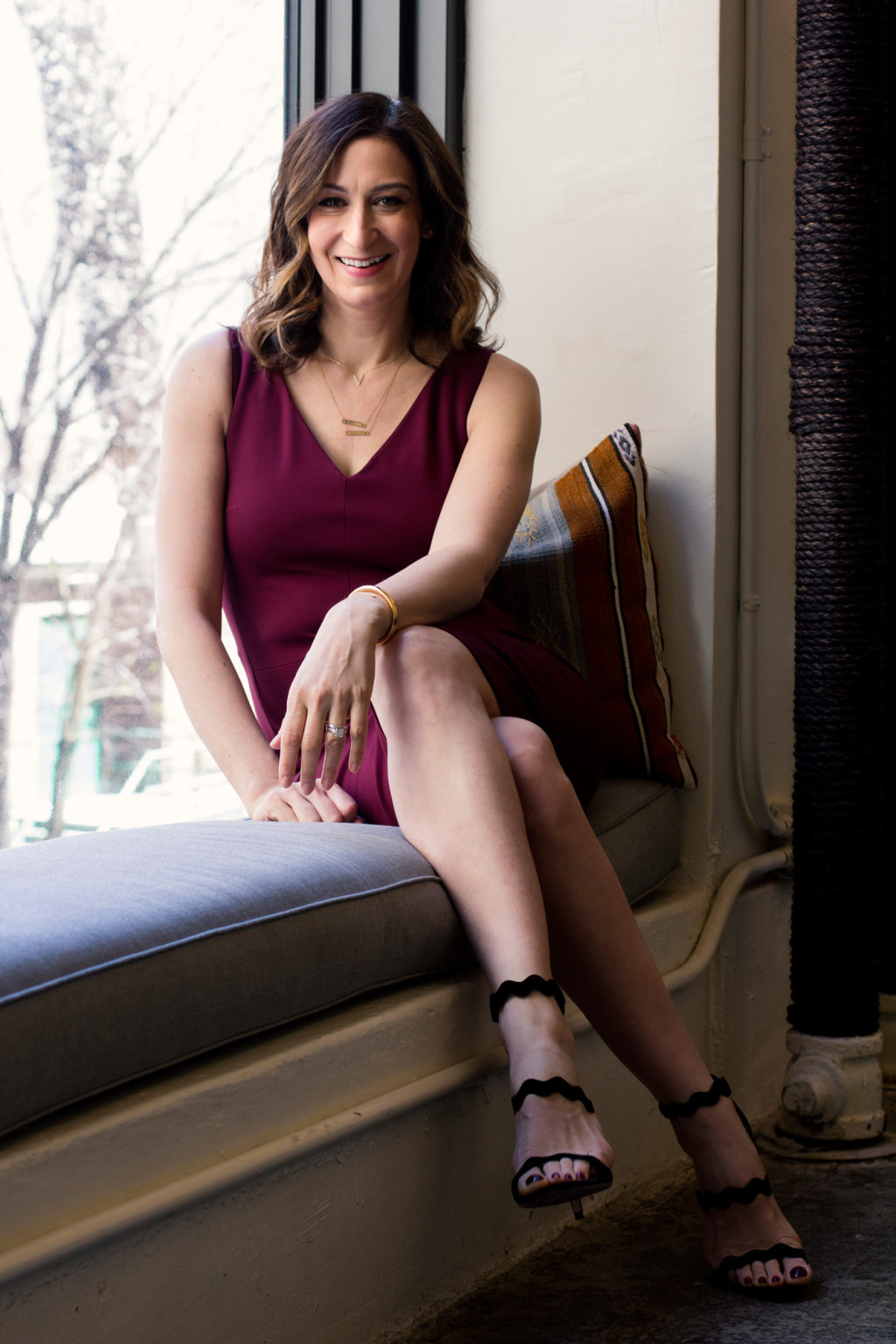
Ann wears the Rachel dress in boysenberry.
WHEN I WAS DOING RESEARCH for The Big Life, I had a series of dinners with six to eight young women at my apartment. I called them the Badass Babes dinners, and I did dozens of them. I would invite one young woman and say, “Bring a friend of a friend,” so not everyone knew each other, but there was some connection. We sat around my dining room table and talked about the emotions around being young and hungry and ambitious, and I was amazed at how open, honest, and candid they were with each other and with me. At the end of dinner, everyone would hang out in my living room and trade business cards and talk about getting together again.
THE MOST IMPORTANT THING I learned during these dinners was about sisterhood. These women very often had their own clique that they relied on—a squad helping them achieve. It’s a huge change, this idea that women are collaborative, not competitive. I realized that networking has evolved into these warm, interconnected groups of women who are generous with their time, attention, contacts, and advice. It doesn’t have to be this cold, transactional thing where you’re standing around with a glass of wine in one hand and a stack of business cards in the other. That didn’t happen when I was coming up in the world, and that sense of sisterhood has been an inspiration to me.
I HAVE WOMEN IN MY LIFE whose success is just as important to me as mine is to them. We don’t have dinners exactly, but their emails come first. When they come to town, I see them first, and they’re at the top of my priority list. You need people around you to help you succeed, but you also need to help them succeed. It’s very gratifying to have that deep connection.
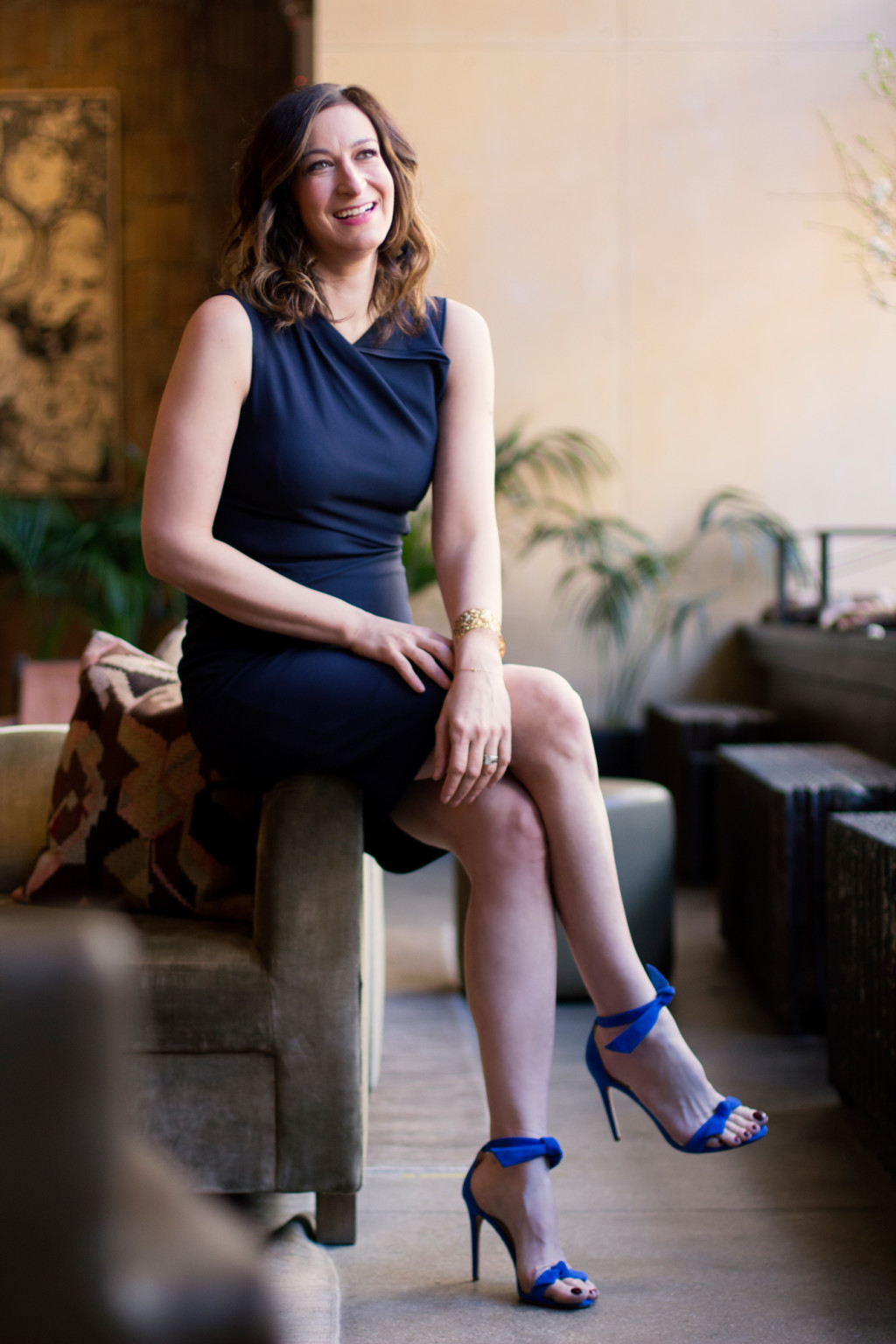
Ann wears the Alex 2.0 dress in midnight blue.
TODAY, YOUNG WOMEN feel empowered to make their jobs work for them—to ask for promotions, raises, reach projects. They also realize that they can’t get everything they need from one job. You need a side hustle or a passion project that teaches you something new, or puts you in charge in a way that you’re not at your day job, or lets you work on a cause that you care about, so that you can be stronger, smarter, more in-control, and more dynamic. You’re not defined by your job; you have other facets, too. I say very often that we should all be more millennial. We should take our cues from a generation of women who are changing the rules of work and life and love for the first time.
ANOTHER MAJOR CHANGE is that everything is feminist these days. For 15 years in young women’s magazines, we never used the word feminism. We talked about confidence, leadership, and equality, but we never used the word feminism until probably 2012. We ran a story called, “Are You a Feminist?” and we weren’t even sure if everyone was okay with that idea. And now, it’s the most important and visible thing that this generation of young women is talking about—which is huge, and points strongly to what matters to them.
AT THIS STAGE IN MY LIFE, I’m very much like a 25-year-old in that I’m trying something brand new and testing my limits. I’m in a new arena, and I wrestle with that fear of not knowing how it’s all going to go. I’ve never written a book before, and I’ve never built a brand that’s so personal to me. It’s exciting and terrifying and nerve-wracking and exhausting and phenomenally rewarding. The thing that keeps me up at 3:00 a.m. is, “Is it all going to turn out okay?” It’s a universal problem. You want to do big, adventurous things, and go into uncharted territory, but you want to know if it’ll work. And who can you ask if you’re doing it right? You have no idea.
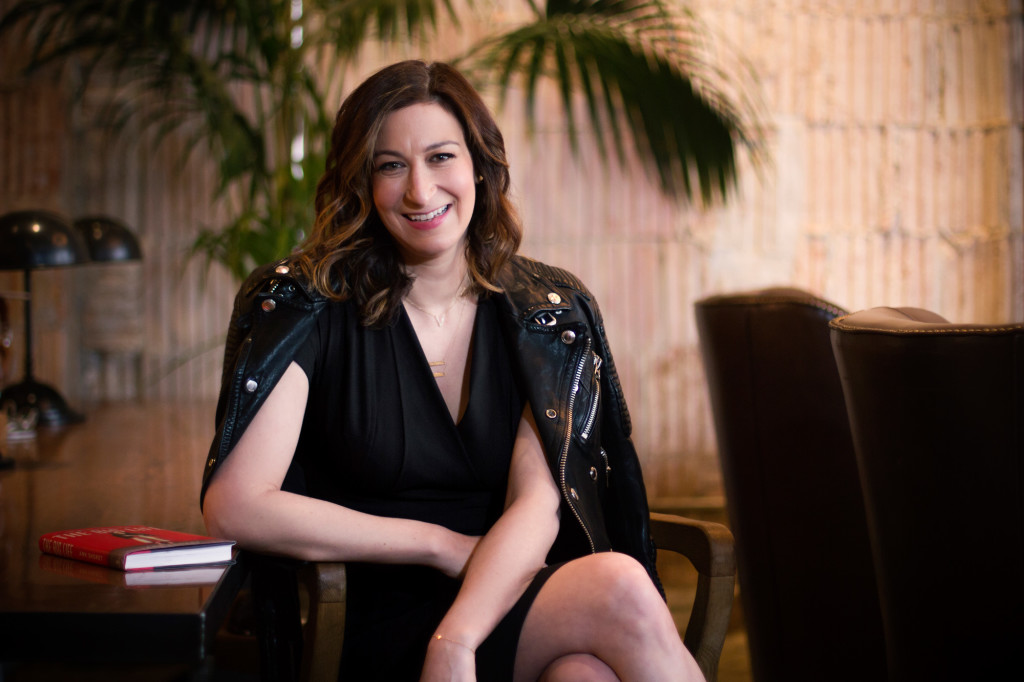
Ann wears the Emma dress in mini zig with her own leather jacket (and her own book on the table next to her).
THE MORE WOMEN FOCUS ON THE ANXIETY and tension between family and work, the more we do ourselves a disservice. It is possible to have both the way you want, but it’s going to be hard and complicated, and the anxiety is not helping anybody. The way millennial women think about work is going to help us solve some of that tension. This concept of being free from the office, and the work still gets done—women are demanding that at all levels and all companies. That conversation is going to make it easier for all of us.
I AM PHYSICALLY TERRIBLE AT JUST RELAXING. I don’t want to go on a beach vacation. That’s just not my jam. I’m more about moments. How can I have a party on a Saturday afternoon with a couple of friends on my roof deck? How can I sneak in happy hour with my husband before the babysitter leaves? We try to do that once or twice a week—or even just walk home together from the subway and have a ten-minute conversation where we’re not surrounded by work. I like a good glass of wine, and sometimes I like two. I do pilates and SoulCycle, which helps me feel strong and clear—but, to be 100% honest, those are the first things to fall off my plate. I like a little mess.
Photographs by Roberto Rischmaui.





